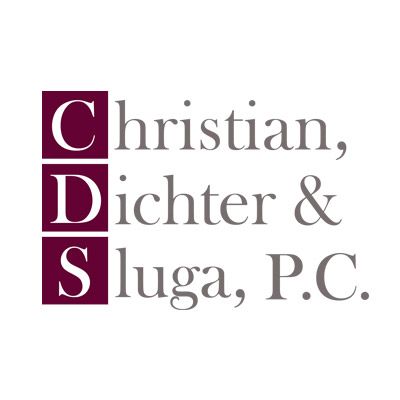Case Alert - Medina v. Est. of Cody
CDS Helps Client Win Landmark Tribal Rights Case

The Arizona Court of Appeals issued an opinion in Medina v. Est. of Cody, No. 1 CA-CV 22-0709, 2023 WL 6470727, at *1 (Ariz. Ct. App. Oct. 5, 2023), in which Gena L. Sluga, managing partner at Christian Dichter and Sluga appeared on behalf of Sentry Insurance Company (“Sentry”). The Court held as follows:
· The broad authority granted to the Navajo tribe to govern enrolled tribal members under the Treaty of 1869 precluded the underlying state court from hearing this particular action;
· Federal precedent makes clear that a plaintiff cannot bring a claim against enrolled tribal members in state court for torts arising from conduct that occurs on a defendant’s reservation, even if the action occurs on a state highway.
SUMMARY
The Court of Appeals upheld the Superior Court’s dismissal of a tort claim based on a lack of subject matter jurisdiction. The action arose from a two-car automobile accident that occurred on a state-maintained highway but on tribal land. Plaintiff argued that tribal courts do not have exclusive jurisdiction over civil tort actions arising from conduct that occurs on state-maintained rights-of-way. The Court of Appeals affirmed the lower court’s dismissal based on the Treaty of 1869 and decades of legal precedent.
FACTUAL BACKGROUND
This matter arose from an automobile accident along a section of U.S. Highway 89 in the Navajo Nation. The occupants of both vehicles were killed upon impact. Mr. Cody, the at-fault driver, was intoxicated and crossed the center line, colliding with the other vehicle, occupied by the Pena Delgado family. Medina, the personal representative for the Pena Delgado family, filed suit against Cody and a separate suit against Cody’s passenger, Aaron Chee, who permitted 18-year-old Cody to drive while intoxicated. The two lawsuits, filed in state court, were eventually consolidated into one action. Sentry successfully moved to intervene in the consolidated action and then moved to dismiss the case arguing that the court lacked subject matter jurisdiction because the tort arose out of on-reservation conduct by members of the Navajo Nation.
The Superior Court agreed and dismissed the claims for lack of subject matter jurisdiction. The following facts were undisputed in the dismissal:
(1) The Defendants were Navajo tribal members residing on the Navajo Reservation;
(2) The Pena Delgado family were not tribal members;
(3) The location of the accident was on a state highway within the territory of the Navajo reservation.
Plaintiff appealed the dismissal, to the Arizona Court of Appeals.
LEGAL REASONING
The primary question before the court was one of jurisdiction over Native Americans and their land. The Court began by noting that questions of jurisdiction over Native Americans are a patchwork of federal, state, and tribal law compiled throughout history. The exact issue in this case was previously addressed in Enriquez v. Superior Court, 115 Ariz. 342, 342-43 (App. 1977). To resolve the question, the Enriquez court looked at the United States Supreme Court’s decision of Williams v. Lee, 358 U.S. 217, 221-22 (1959) which held that state courts may not exercise jurisdiction over on-reservation activity and a federal criminal statute, 18 U.S.C. § 1151(a) which defined “Indian Country” to include all lands within the limits of any Indian Reservation, including rights-of-way running through the reservation.
Plaintiff acknowledged that the Enriquez decision has not been overruled in Arizona, but argued instead that subsequent case law raised questions of its continuing viability. Specifically, Plaintiff argued that a series of United States Supreme Court cases should be used to apply stricter limitations on the reach of tribal jurisdiction and urged the Court of Appeals to revisit and reverse Enriquez.
The Court of Appeals found that the Supreme Court, without overruling its prior holding of Williams, has identified a separate framework for resolving conflicts between state and tribal jurisdiction. Williams had created an infringement test considering the scope of state court jurisdiction over an enrolled tribal member. The more recent cases cited by Plaintiffs have explored the extent of tribal court jurisdiction over non-tribal members. The Court determined that Arizona has not assumed general jurisdiction over Native American tribes and their members, thus, its authority to address disputes involving tribal members for on-reservation conduct is limited by jurisdictional framework from the Supreme Court.
In this case, the Court of Appeals held that the pertinent facts fall squarely in the framework of the Williams’ decision. Under Williams, a state court lacks subject matter jurisdiction if (1) a non-tribal member brings a claim against an enrolled tribal member for conduct occurring on that member’s reservation, or (2) all parties are enrolled tribal members of the same tribe and the claim involves conduct occurring on the tribes reservation. Under this test, the claims brought by Plaintiff falls under part (1) of the test and thus a state court lacks subject matter jurisdiction.
However, Plaintiff also argued that a U.S. Highway that runs through tribal land is non-Indian fee land. The Supreme Court has indeed previously concluded that state-maintained highway on which an accident occurred was the equivalent of non-Indian fee land. But, the decision of Strate v. A-1 Contractors, 520 U.S. 438, 449 (1997) was intentionally limited to actions against non-tribal members. As such, Strate does not supplant Williams. The Court of Appeals affirmed the decision of the Superior Court to dismiss the action for lack of jurisdiction, as the Navajo tribal court’s authority would have been infringed had the state court decided the case on the merits.
Link to the opinion: https://www.azcourts.gov/Portals/0/OpinionFiles/Div1/2023/1%20CA-CV%2022-0709%20-%20Medina%20v.%20Chee%20-%20Opinion.pdf





